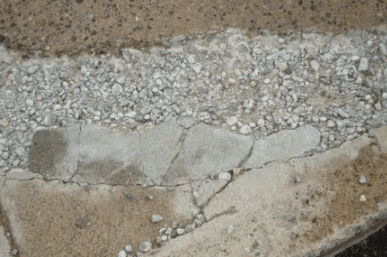What Can Happen If Your Concrete Is Too Wet In El Cajon?

- Concrete strength is dependent on the amount of water it contains. When the concrete mix has more water than necessary, it will become weaker and less durable over time. This can lead to costly repairs or replacements in the future.
- As the excess water evaporates from the surface of the concrete, shrinkage cracks can form as a result of thermal contraction and settlement of its components. These cracks may allow moisture to penetrate into vulnerable areas such as foundations, walls, and driveways which could cause further damage down the road.
- When too much water is added to the concrete mix, it can cause segregation of the cement and aggregate particles. This means that smoother parts will be separated from rougher areas, resulting in a less uniform look.
- In order for the concrete to develop its full strength potential, it needs time to cure or “set” over several weeks or months. If the concrete mix was too wet, this curing process may not take place properly which could lead to poor strength and overall quality of the finished product.
- The workability of concrete refers to how easy it is for a contractor to shape into its desired form. If the concrete is too wet, it will be difficult to work with and can lead to a sloppy finish.
- Concrete needs to set in order for it to hold its shape. When water has been added in excess, it can delay the setting time which can cause problems down the line if other tasks need to be completed on top of the concrete surface before hardening occurs.
- When there’s an imbalance between cement paste and water content, this can cause excessive bleeding of water from the mix which results in weak spots in the surface of your concrete. This could put you at risk for serious structural damage or even collapse if left unchecked.
FAQ’s
Can You Touch Wet Concrete?
Yes, but it is important to use caution when handling wet concrete as it can be slippery and heavy. Also, if your hands are wet or you are wearing gloves, the water may interfere with the curing process of the concrete which could have a negative impact on its strength and overall quality.
Is Wet Concrete Toxic To Breathe?
Yes, wet concrete can be toxic to breathe as it contains high levels of cement dust which has been linked to several respiratory illnesses. It is best to keep a safe distance from wet concrete and wear a respirator if working in close proximity.
What Happens If You Use Too Much Water In Concrete?
When there is an excess of water added to the mix, this can lead to weak points, shrinkage cracks, and improper curing which can all have an adverse effect on the strength and overall quality of the finished product.
Conclusion
It is important to use the correct amount of water when mixing concrete in order to ensure that it sets properly and has the necessary strength for a long-lasting application. Too much or too little water can have serious implications on its quality, so be sure to follow the manufacturer’s instructions for best results. For more information, contact Concrete Contractor El Cajon at (619) 473-4433.